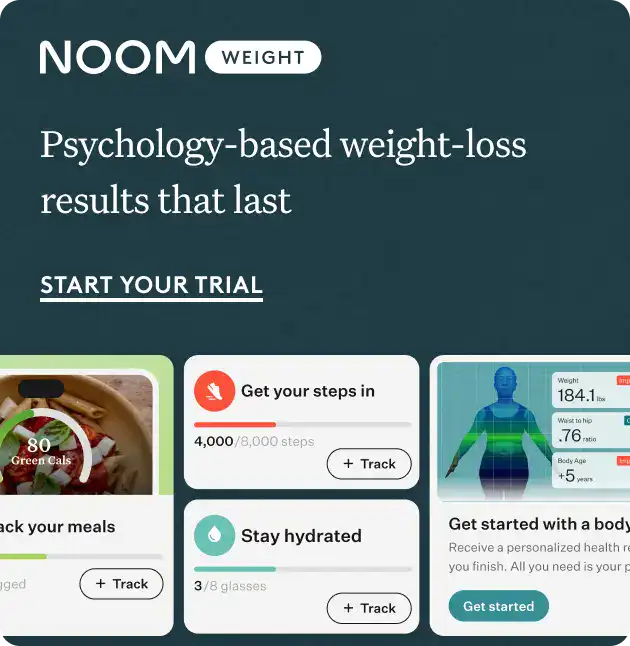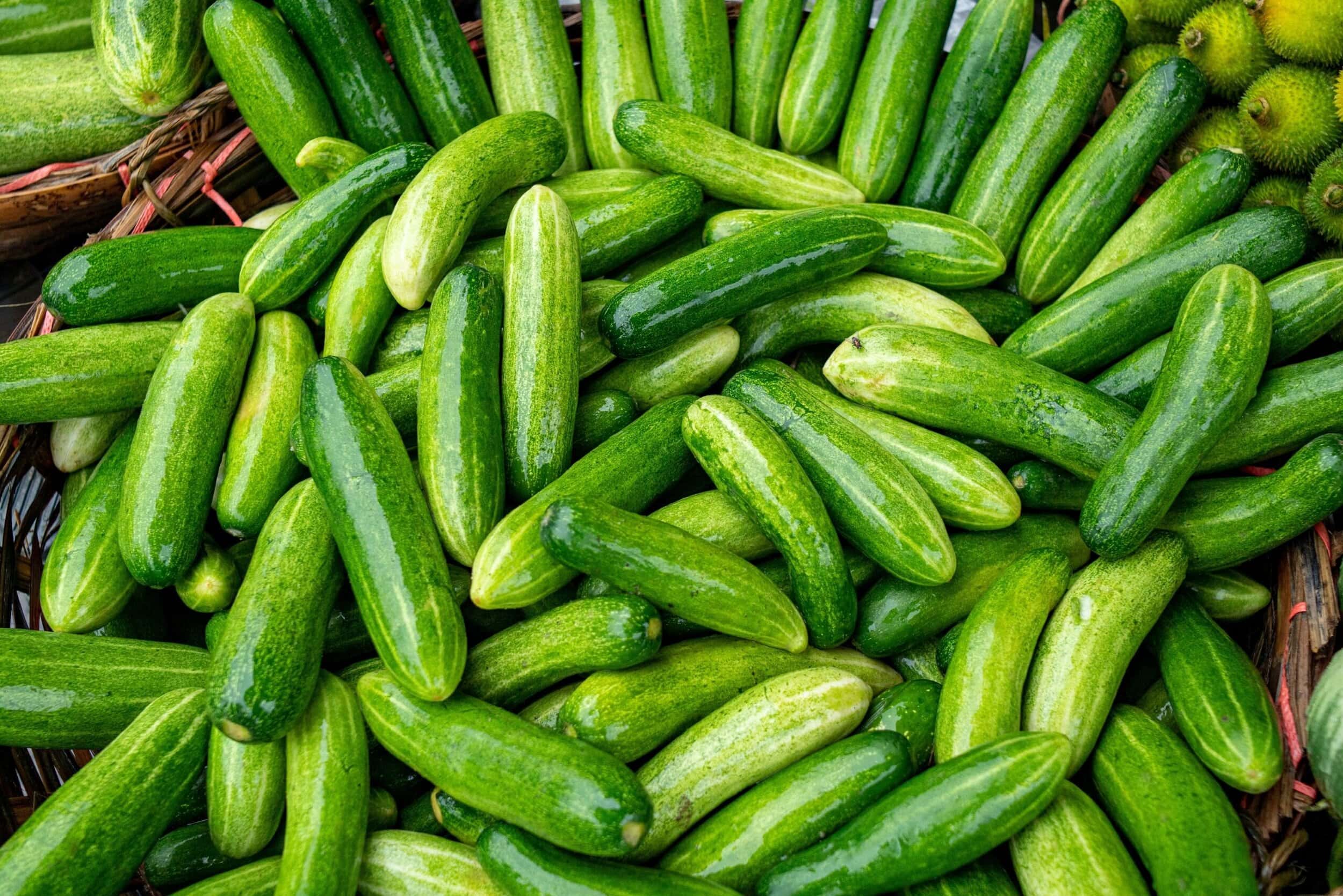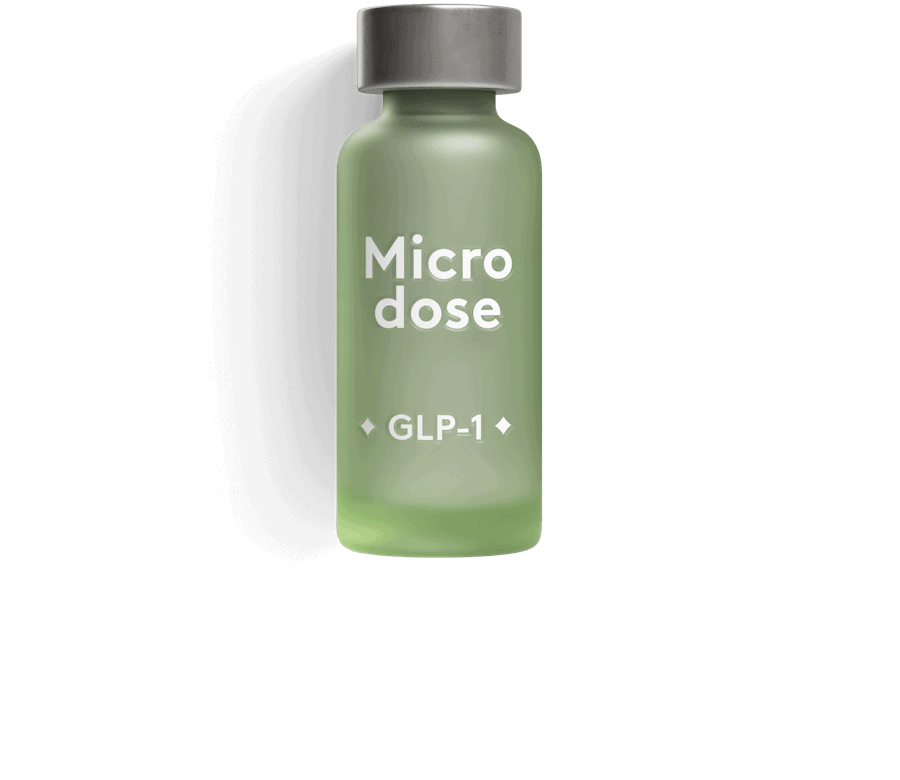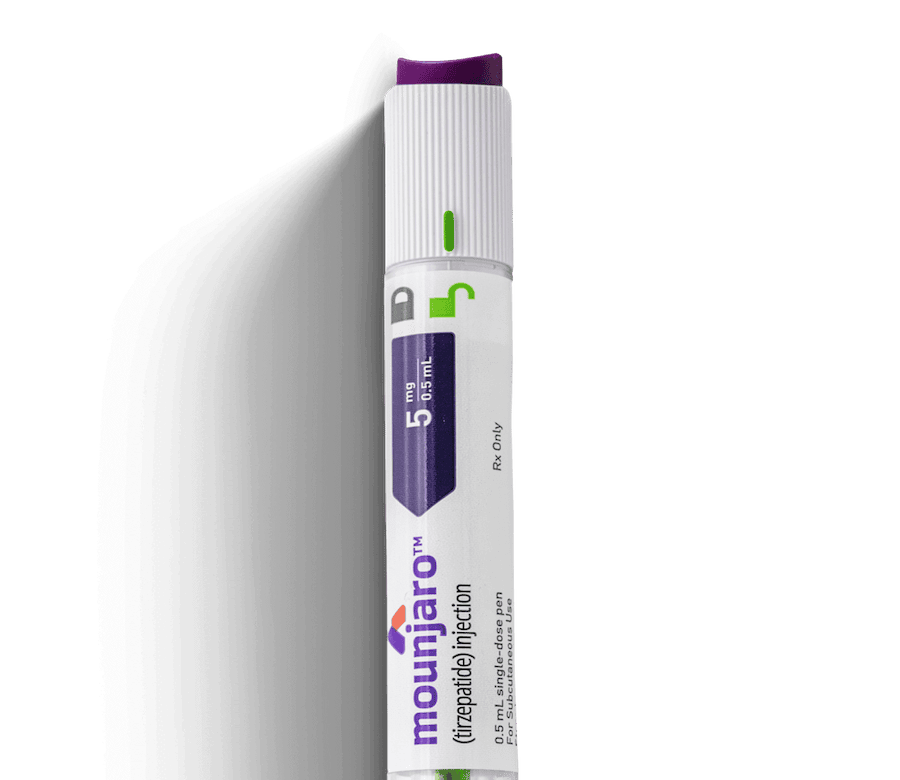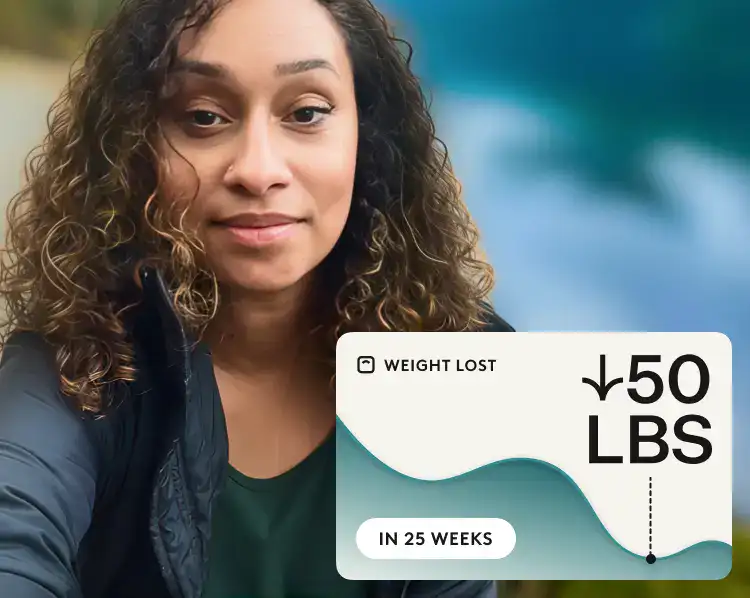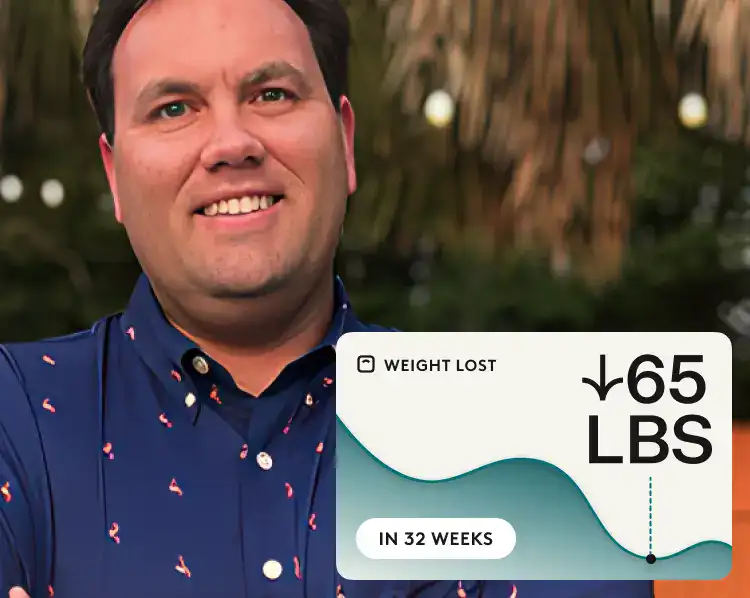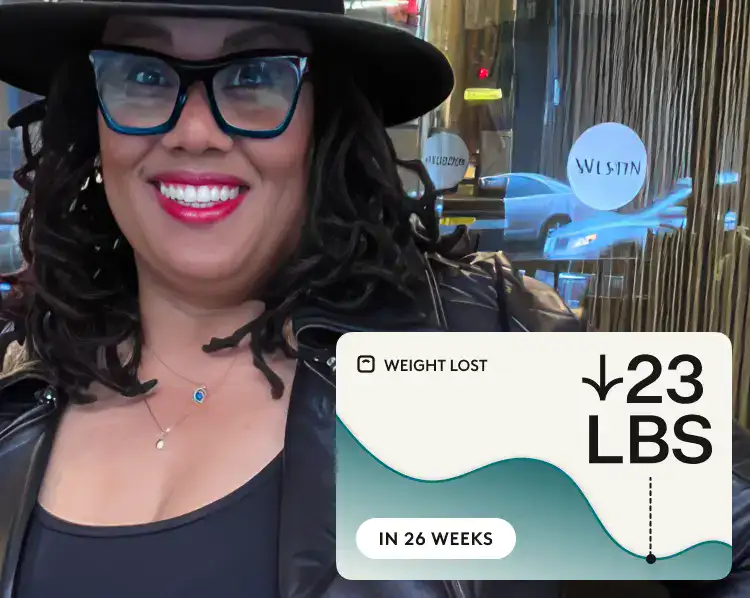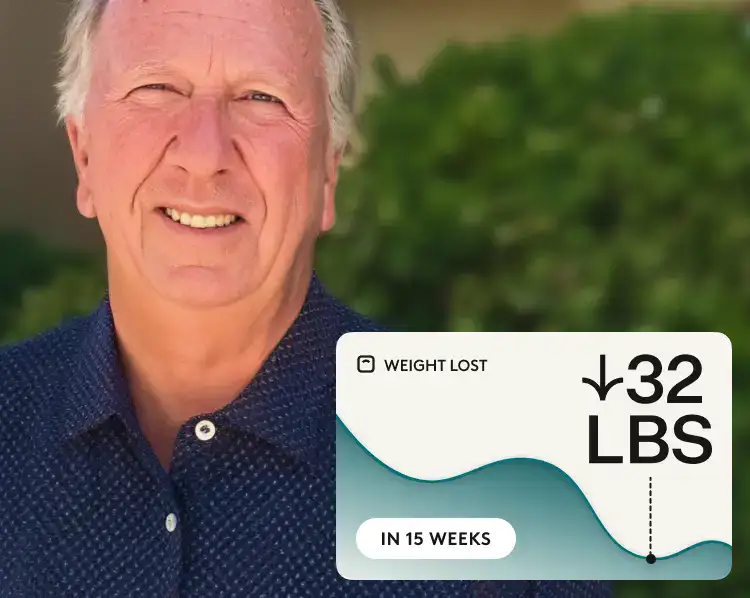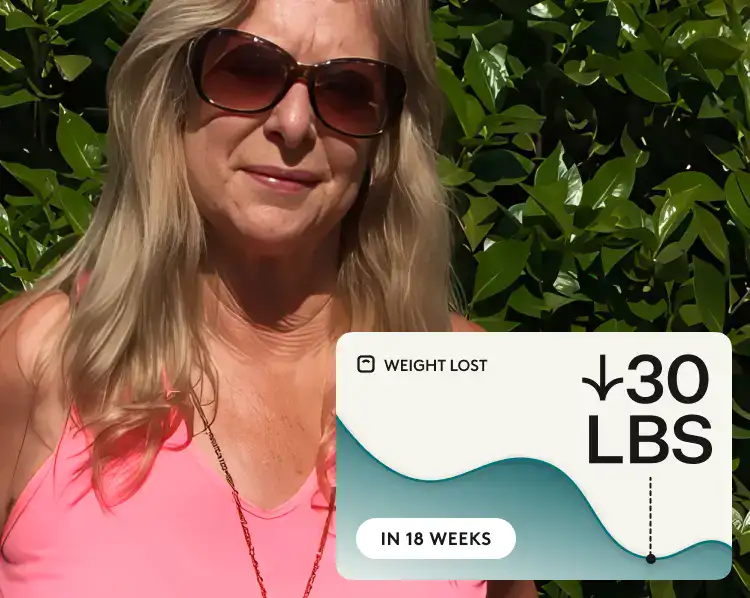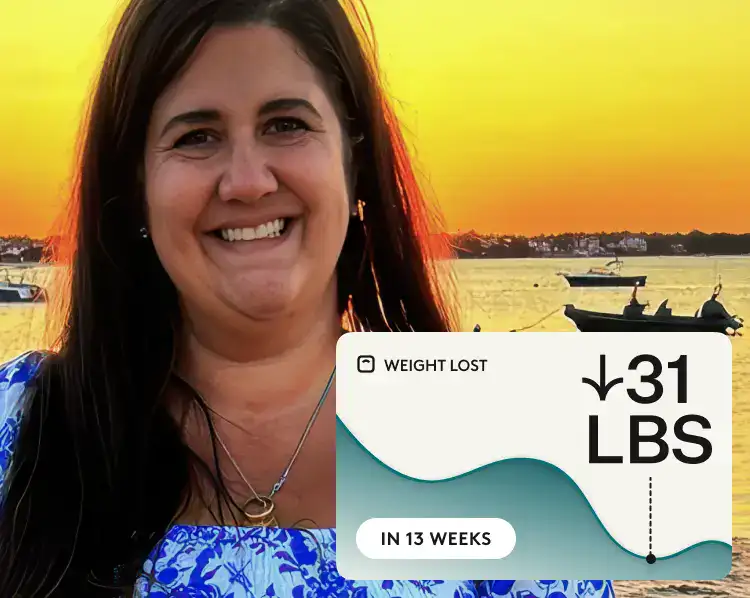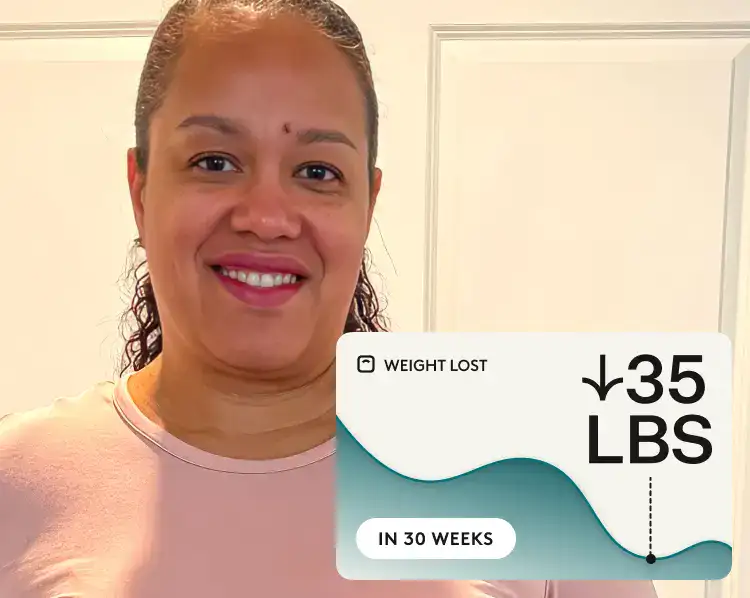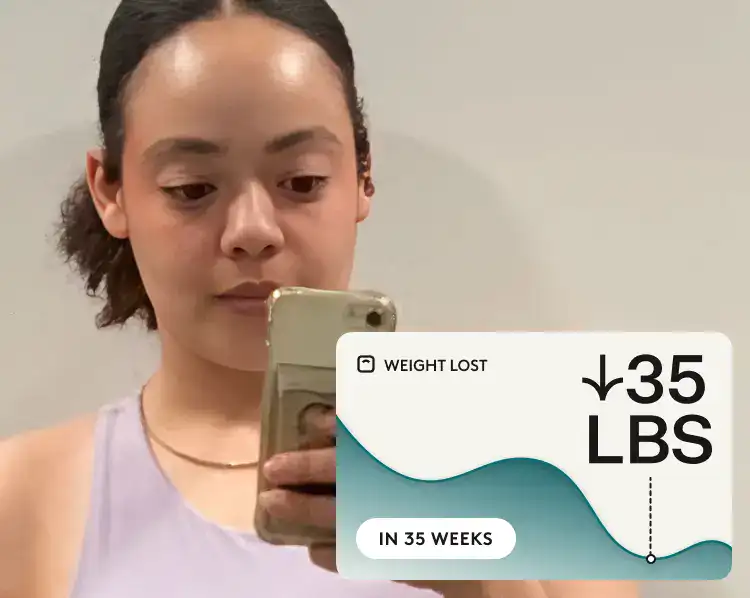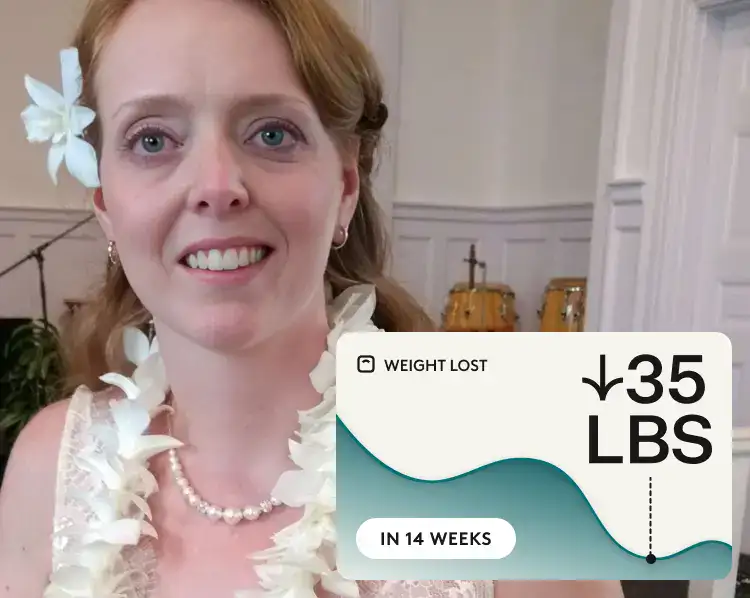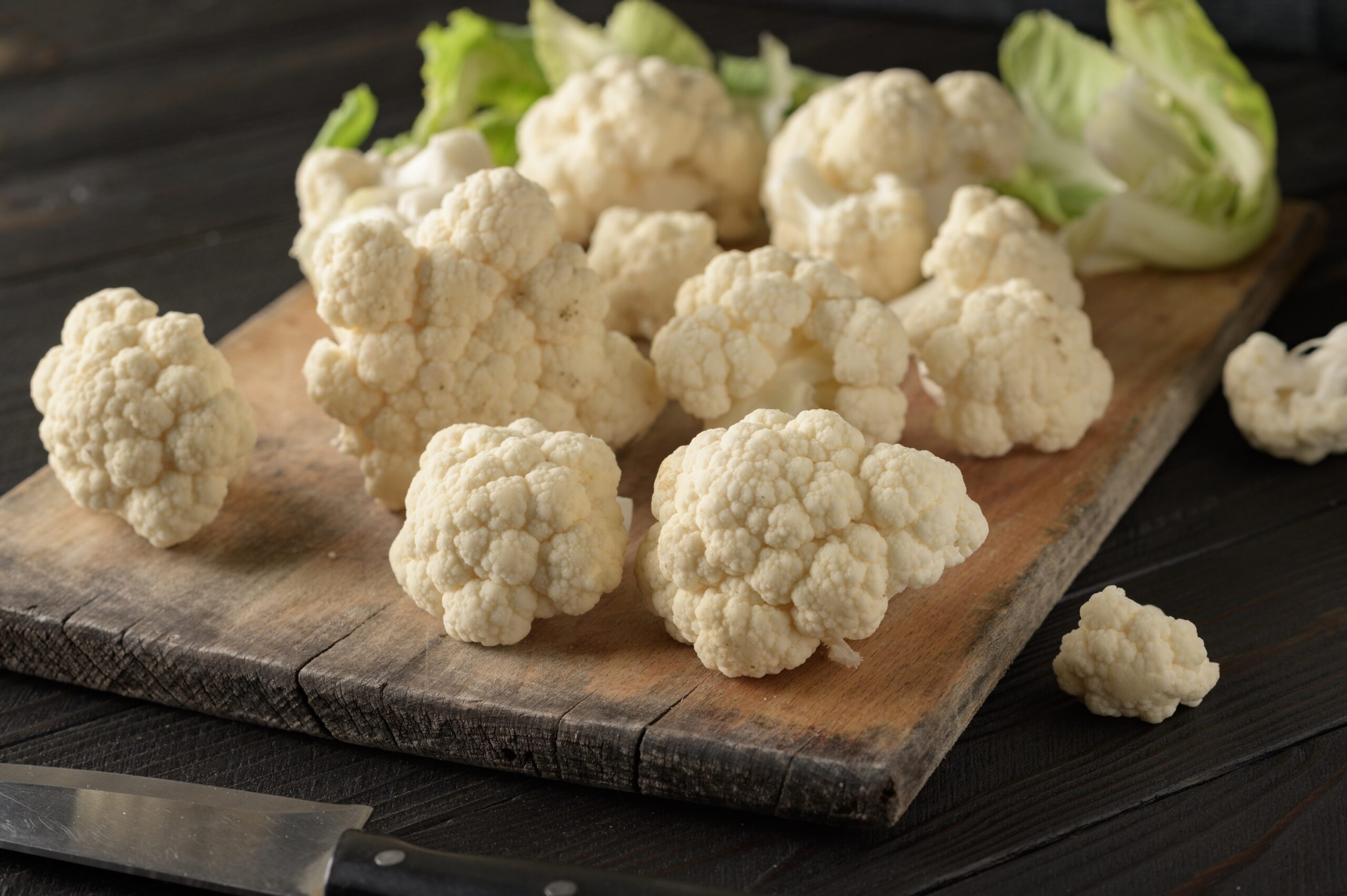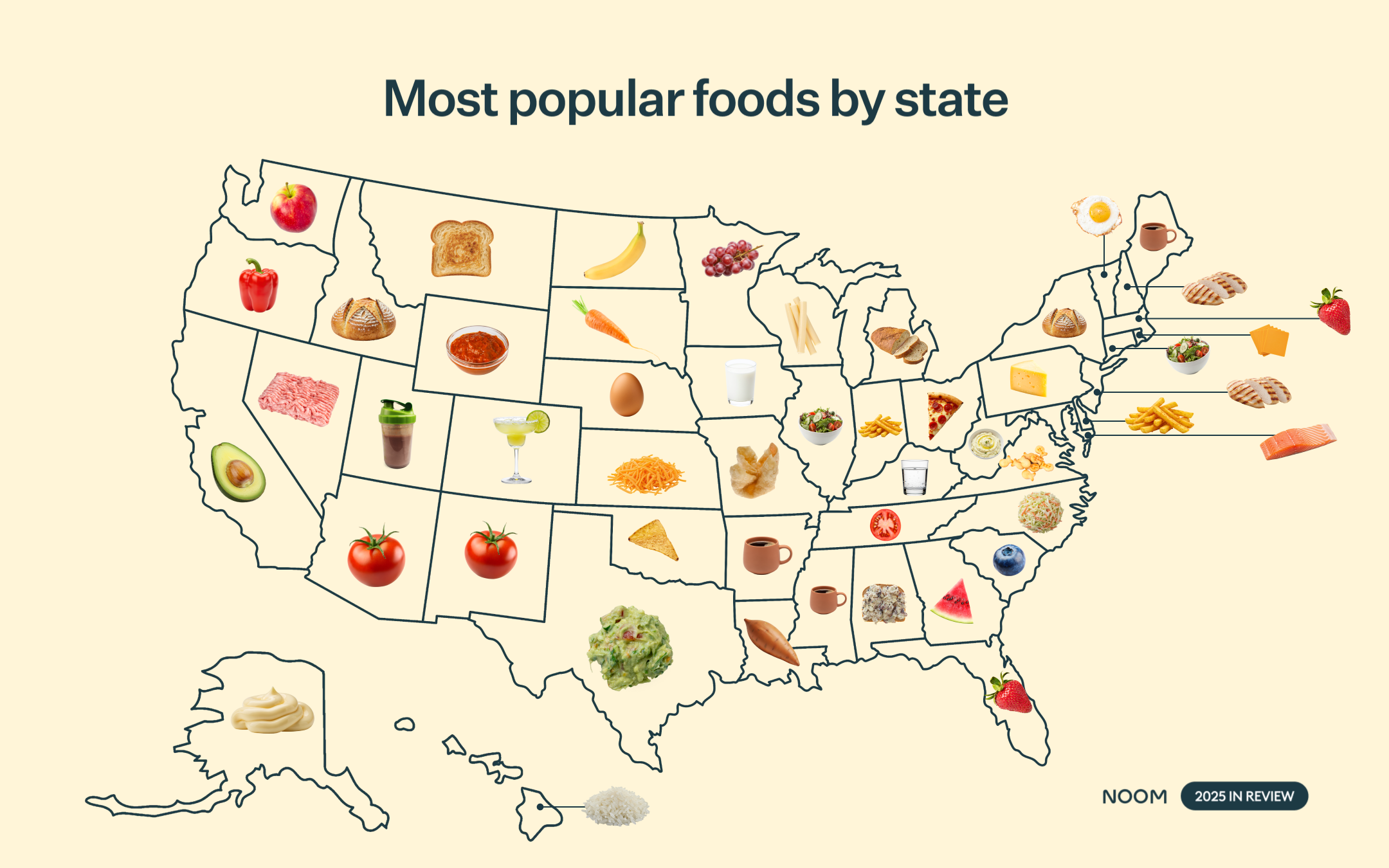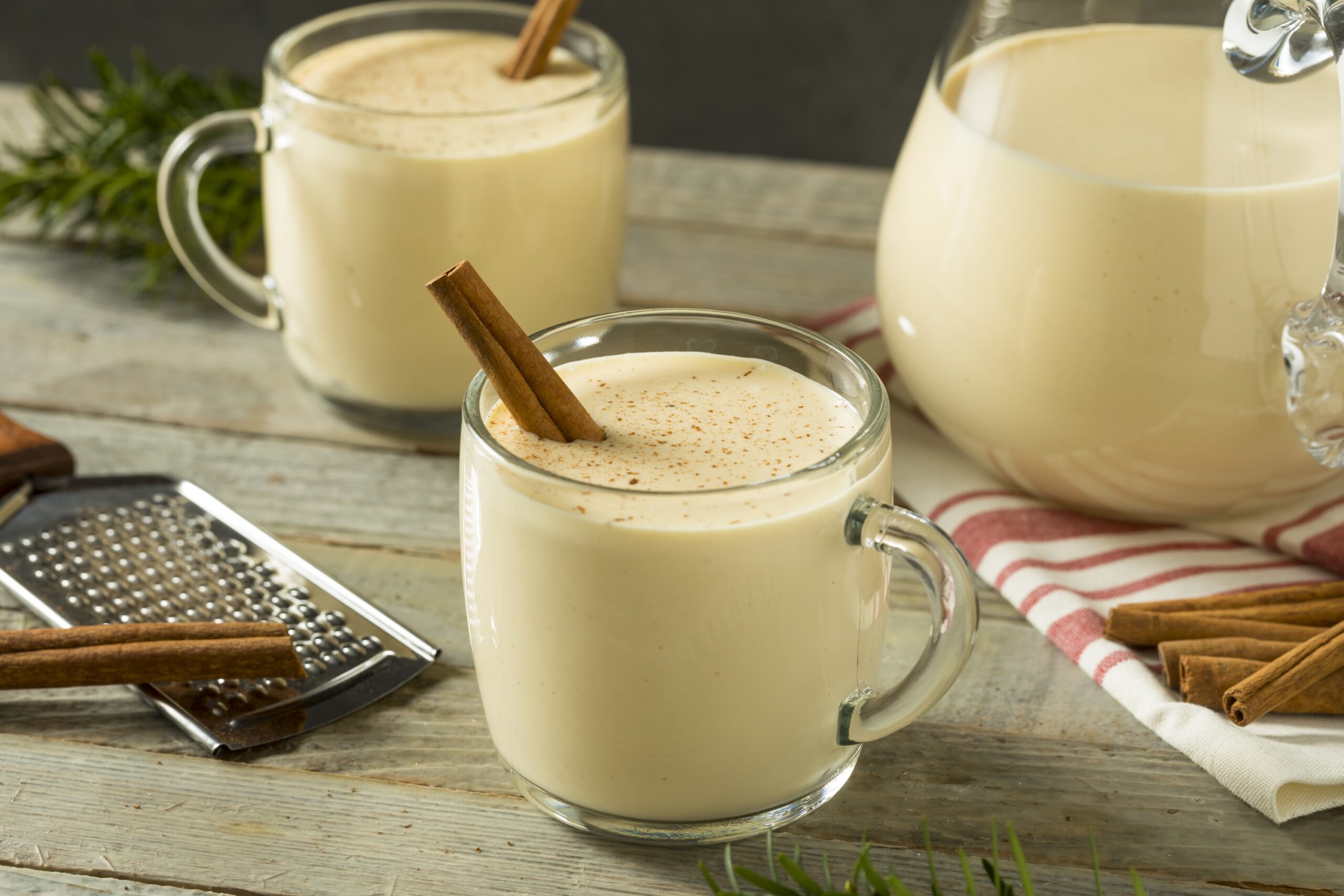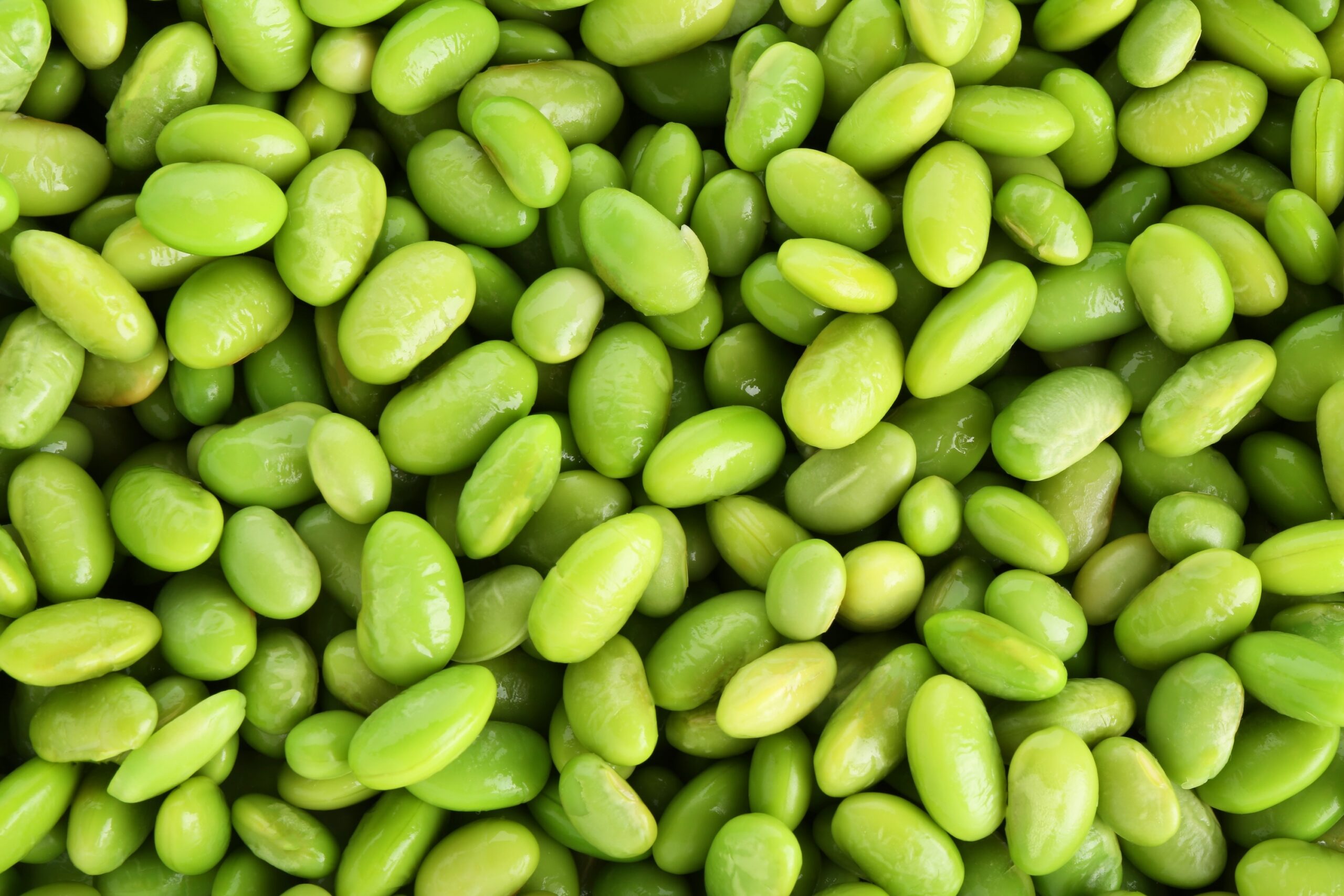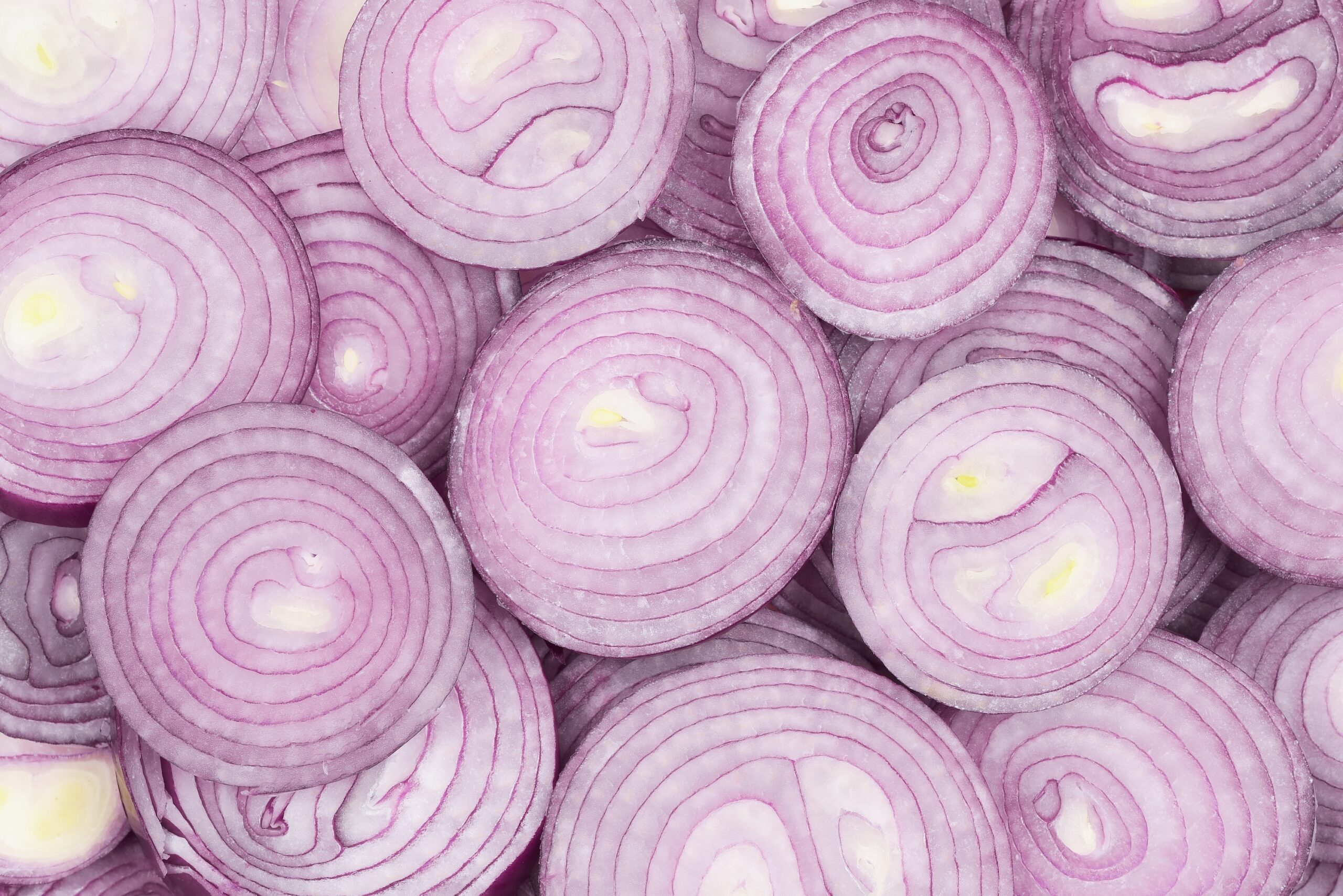At just 15 calories per 100 grams and composed of 95% water, cucumbers are one of the lowest-calorie foods you can eat. This unique nutritional profile makes them a popular choice for weight loss because you can eat a substantial amount while consuming minimal calories. Their high water content also means they take up significant space in your stomach, potentially helping you feel fuller.
Keep in mind that they’re very low in protein and fiber, two nutrients that are crucial for keeping you full. This means that cucumbers are best when combined with other nutrient-dense foods for lasting satiety.
✅ Quick answer
Yes, cucumbers are an excellent food to include in a weight-loss diet.
✅ Why cucumbers can support your goals
- They’re extremely low in calories – With only about 15 calories for about 2/3 of a medium cucumber, cucumbers are one of the least calorie-dense foods available.
- They are mostly water – Composed of about 95% water, cucumbers are incredibly hydrating.
- They give you important nutrients – Cucumbers contain valuable vitamins and minerals, particularly Vitamin K, which is vital for bone health and blood clotting, plus other antioxidants if you eat the peel.
Rx weight loss, the right way, with Noom
Get access to prescription weight loss medication with Noom.⚠️ Things to be mindful of
- They’re low in protein – Cucumbers contain negligible amounts of protein, the most satiating macronutrient, so relying too heavily on them without pairing with protein sources can leave you feeling hungry shortly after eating.
- They’re low in fiber – Although cucumbers contain some fiber, the amount is quite low compared to other vegetables like broccoli or leafy greens.
- They may cause digestive issues in some people – Cucumbers contain compounds called cucurbitacins, which can cause gas and indigestion in people who are sensitive, especially if they eat a large amount.
🥗 Nutrients in cucumbers (per 100 g / 2/3 medium cucumber)
| Nutrient | Amount | % RDA* |
|---|---|---|
| Calories | 15 calories | 1% |
| Protein | 0.65 g | 1% |
| Total carbs | 3.63 g | 1% |
| Fiber | 0.5 g | 2% |
| Sugars | 1.67 g | — |
| Total fat | 0.11 g | 0% |
| – Saturated fat | 0.037 g | 0% |
| – Monounsaturated fat | 0.005 g | — |
| – Polyunsaturated fat | 0.032 g | — |
| Omega-3 | 0 g | — |
| Omega-6 | 0 g | — |
Cucumbers are a refreshing, low-calorie way to add crunch, hydration, and volume to meals without adding much to your daily calorie count. They’re especially helpful for increasing portion size and lowering the calorie density of a dish, making them a smart addition to salads, wraps, or snack plates. While cucumbers pair well with nutrient-dense foods like hummus, feta, or grilled chicken, they offer very little on their own in terms of protein, fat, or complex carbohydrates. With less than 1 gram of protein and just over 3.5 grams of carbs per 100 grams, they won’t provide lasting energy or fullness—but they do play a valuable supporting role in a balanced, satisfying meal.
*Recommended dietary allowance (RDA) is defined as the average daily amount of nutrients needed to meet the requirements of nearly all healthy people in a specific group.
💊 Vitamins & minerals in cucumbers (per 100 g / 2/3 medium cucumber)
| Vitamin/Mineral | Amount | % RDA* |
|---|---|---|
| Vitamin K | 16.4 μg | 14% |
| Potassium | 147 mg | 3% |
| Vitamin C | 2.8 mg | 3% |
| Magnesium | 13 mg | 3% |
| Manganese | 0.079 mg | 3% |
| Vitamin B6 | 0.04 mg | 2% |
| Zinc | 0.2 mg | 2% |
| Phosphorus | 24 mg | 2% |
| Vitamin A | 5 μg | 1% |
| Selenium | 0.3 μg | 1% |
While they may not be nutritional powerhouses like dark leafy greens, cucumbers still contribute helpful vitamins and minerals—especially when eaten with the skin on, which contains higher concentrations of nutrients and antioxidants. Their standout micronutrient is Vitamin K, providing 14% of the recommended daily value in just 100 grams. Cucumbers also deliver small but meaningful amounts of potassium, magnesium, manganese, and Vitamin C, adding to your overall nutrient intake. Though their contributions are modest, cucumbers play a supportive role in a balanced diet, especially when combined with a variety of colorful vegetables.
🔍 Nutrient breakdown
Glycemic index (GI) of cucumbers
✔️ Glycemic index: 15 (Low)
💡 Tip: Low-GI foods like cucumbers release sugar into the bloodstream slowly, helping to prevent energy crashes and control cravings, which is ideal for weight management.
Are cucumbers high in protein?
❌ No: Cucumbers contain just 0.65 g of protein per 100 g, which is negligible and doesn’t contribute significantly to daily protein needs.
🔹 Better protein alternatives: Grilled Chicken Breast | Lentils | Greek Yogurt
Are cucumbers high in fiber?
❌ No: They provide only 0.5 g of fiber per 100 g, which isn’t enough to rely on for daily requirements.
💡 Tip: To boost your fiber intake, add cucumbers to a salad with high-fiber ingredients like chickpeas, avocado, and mixed greens.
Are cucumbers low in carbs?
✔️ Yes: They have only 3.63 g of total carbs per 100 g, making them an excellent choice for low-carb and ketogenic diets.
💡 Tip: Use cucumber slices as a low-carb substitute for crackers when eating dips like hummus or guacamole.
Are cucumbers gluten-free?
✔️ Yes: Cucumbers are naturally 100% gluten-free and safe for individuals with celiac disease or gluten sensitivity.
Are cucumbers good for fat loss?
✔️ Yes: Due to their extremely low-calorie and low-carbohydrate profile, cucumbers are very helpful for fat loss by allowing you to add volume and crunch to meals without adding significant energy.
🍽️ Diet compatibility: Which diets include cucumbers?
| Diet | ✅Yes /❌No | Why |
|---|---|---|
| Keto | ✅ | With only about 3 grams of net carbs per 100g serving, cucumbers are exceptionally keto-friendly and won’t risk ketosis. |
| Paleo | ✅ | Cucumbers are a natural, whole food that fits perfectly within the Paleo framework as a non-starchy vegetable. |
| Mediterranean | ✅ | Fresh vegetables are emphasized in the Mediterranean diet, and cucumbers are a classic component in Greek salads and tzatziki. |
| Vegan | ✅ | As a plant-based food, cucumbers are fully compatible with a vegan diet and provide crisp texture to various dishes. |
| Gluten‑free | ✅ | Cucumbers are naturally free of gluten, making them a safe choice for anyone following a gluten-free diet. |
Cucumbers are one of the most versatile and universally accepted vegetables across popular diets. Their incredibly low carbohydrate content makes them perfect for ketogenic dieters, while their unprocessed, natural state aligns with Paleo principles. For Mediterranean and vegan diets, they provide freshness and hydration, and they’re completely safe for those avoiding gluten.
🌟 Are cucumbers healthy? What are the health benefits
Metabolic health: Are cucumbers good for your metabolism?
- ❌ Boosts metabolism? No – Cucumbers don’t contain compounds known to directly boost metabolic rate, but their high water content supports optimal metabolic function since dehydration can slow it down.
- ✔️ Improves insulin sensitivity? Yes – Some animal studies suggest cucumber extracts may have anti-diabetic effects and help improve insulin sensitivity, linked to compounds like cucurbitacins.
- ✔️ Effect on fat storage? Helps prevent – By being extremely low in calories and high in water, cucumbers help create fullness that leads to lower overall calorie intake, preventing excess energy storage as fat.
Cholesterol impact: Do cucumbers affect cholesterol levels?
- ❌ Does it lower LDL (bad) cholesterol? Unknown – There’s no direct evidence from human trials showing cucumbers lower LDL cholesterol, though they’re part of a vegetable group that can contribute to improved cholesterol when part of a balanced diet.
- ❌ Does it raise HDL (good) cholesterol? No – There’s no evidence suggesting cucumbers can raise HDL cholesterol, which is typically improved through exercise and healthy fats. ✔️
- Overall impact on heart health? Cucumbers have a favorable impact due to their high potassium content and lack of sodium, helping regulate blood pressure, plus antioxidants that support healthy weight.
💡 Tip: Combine cucumbers with other heart-healthy foods like tomatoes, olive oil, and leafy greens in a salad to maximize cardiovascular benefits.
Can I eat cucumbers for a calorie deficit?
- ✔️ Yes, with confidence: Cucumbers are ideal for a calorie deficit since their very low calorie density means you can eat large, satisfying portions for very few calories.
💡 Tip: Use sliced cucumbers as a base for appetizers instead of high-calorie crackers or bread.
Are cucumbers rich in antioxidants?
- ✔️ Yes: Cucumbers contain flavonoids like fisetin and tannins, as well as lignans that help protect cells from oxidative stress and free radical damage.
Do cucumbers support gut health?
- ✔️ Yes: The small amount of fiber in cucumbers, particularly in the peel, can support a healthy gut microbiome by feeding beneficial bacteria, while high water content helps prevent constipation.
Do cucumbers support digestion?
- Positive: The combination of water and insoluble fiber helps add bulk to stool and promotes regularity, making them beneficial for maintaining a healthy digestive system.
Do cucumbers help you feel satiated and less hungry?
- Moderate: While not high in protein or fiber, the high water and air content adds significant volume to your stomach for very few calories, triggering satiety signals.
💡 Tip: Start your meal with a cucumber salad to take the edge off your hunger, helping you eat less of the more calorie-dense main course.
Do cucumbers help with nighttime cravings?
- ✔️ Yes: A few slices of cucumber before bed are an excellent choice since they’re light, hydrating, and won’t cause a blood sugar spike that could interfere with sleep.
💡 Tip: The satisfying crunch can help curb cravings for salty, crunchy snacks like chips when you’re tempted late at night.
Do cucumbers help reduce inflammation?
- ✔️ Yes: Cucumbers contain flavonoids and tannins that have anti-inflammatory properties by inhibiting pro-inflammatory enzymes, which is beneficial since chronic inflammation is linked to many diseases.
Are cucumbers beneficial for brain health?
- ✔️ Limited benefits: The anti-inflammatory flavonoid fisetin found in cucumbers has been studied for protecting nerve cells and improving memory, though the amount is modest.
Can cucumbers improve skin and hair health?
- ✔️ Yes: The high water content keeps skin hydrated from the inside out, and they contain silica in the peel, which strengthens hair and nails.
Can cucumbers help balance hormones?
- ❌ No: There’s no direct evidence that cucumbers significantly impact hormones like cortisol, estrogen, or testosterone.
💡 Tip: Hormonal balance is complex and influenced by overall diet, stress, sleep, and medical factors, not single foods.
🍽️ Best ways to eat cucumbers for weight loss
- Raw in salads or as a crunchy snack: Eating cucumbers raw helps preserve their high water content and nutrients, making them an easy, low-calorie addition to meals or snack plates without added oils or calories.
- In infused water: Add cucumber slices to your water bottle for a refreshing twist that can encourage you to drink more throughout the day—without adding sugar, calories, or artificial ingredients.
- Paired with protein-rich dips: Match cucumber slices with hummus, Greek yogurt, or cottage cheese for a satisfying snack that combines hydration and crunch with the staying power of protein.
🍏 Best alternatives & comparisons (Per 100 g)
| Food | Calories | Carbs | Fiber | Protein | Fat |
|---|---|---|---|---|---|
| Cucumber | 15 | 3.6 g | 0.5 g | 0.7 g | 0.1 g |
| Celery | 14 | 3.0 g | 1.6 g | 0.7 g | 0.2 g |
| Zucchini | 17 | 3.1 g | 1.0 g | 1.2 g | 0.3 g |
| Iceberg lettuce | 14 | 3.0 g | 1.2 g | 0.9 g | 0.1 g |
| Red bell pepper | 26 | 6.0 g | 2.1 g | 1.0 g | 0.3 g |
| Radish | 16 | 3.4 g | 1.6 g | 0.7 g | 0.1 g |
Cucumbers hold their own among other ultra-low-calorie vegetables, but each option brings something different to the table. Celery and radishes offer more fiber, which can help keep you fuller longer. Zucchini and bell peppers have slightly more protein and fiber, while still being light and hydrating. The best strategy? Mix and match—building variety into your meals boosts satisfaction, nutrient diversity, and long-term success with weight loss.
Frequently asked questions about cucumbers and weight loss
How many cucumbers can I eat per day for weight loss?
There’s no strict limit since cucumbers are so low in calories, but 1 to 2 cucumbers daily provides good volume and hydration without overdoing it.
Should I peel cucumbers before eating them?
No, keep the peel on for maximum fiber, vitamins (especially Vitamin K), and antioxidants. Just wash them thoroughly first.
Can I lose weight by eating only cucumbers?
No, cucumber-only diets are not sustainable or healthy since you’d miss essential proteins, fats, and other nutrients your body needs.
Are pickled cucumbers as good for weight loss?
In moderation, pickled cucumbers are often high in sodium, so be sure to factor that into your diet.
When is the best time to eat cucumbers for weight loss?
Anytime works, but they’re especially helpful before meals to increase fullness or as evening snacks to satisfy cravings without excess calories.
🧠The bottom line: Are cucumbers good for weight loss?
Cucumbers can be a great go-to in your weight-loss toolkit—but like any single food, they work best as part of a bigger picture. Their super low-calorie, high-water makeup means you can snack on them freely, add bulk to meals, and stay hydrated without slowing your progress. But to really feel satisfied and meet your nutrition needs, you’ll want to pair them with foods that offer protein, healthy fats, and fiber. Think of cucumbers as a helpful food to help you stay full while keeping your meals balanced and enjoyable.
📖 Scientific evidence
- Cucumbers may help with blood sugar, cholesterol, and inflammation (Fitoterapia, 2013): Researchers found that cucumber’s natural plant compounds could support healthier glucose levels, lower cholesterol, and help your body manage oxidative stress.
- Cucumbers (and their veggie cousins) may help fight inflammation and support blood sugar balance (Nutrition, 2020): Veggies from the cucumber family are packed with natural plant compounds that early research links to antioxidant, antidiabetic, and anti-inflammatory benefits.
- Cucumbers and other melons may offer more health benefits than we think (Foods, 2025): A review found that cucurbits (like cucumber, pumpkin, and melon) contain natural compounds that may help with blood sugar, inflammation, and even cancer protection.
- Low-energy-density diets help control calorie intake (Nutrients, 2016): A study found that eating more low-energy-density foods (especially vegetables, fruits, whole grains) helps people feel full while eating fewer calories overall
Editorial standards
At Noom, we’re committed to providing health information that’s grounded in reliable science and expert review. Our content is created with the support of qualified professionals and based on well-established research from trusted medical and scientific organizations. Learn more about the experts behind our content on our Health Expert Team page.
